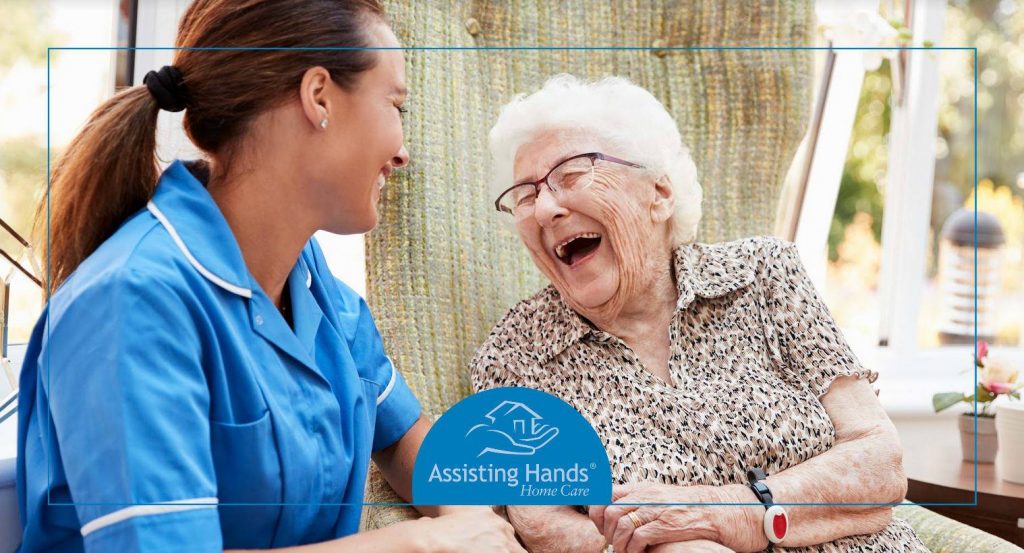
For the elderly, living alone at home often means self-sufficiency, familiarity and security. Adult children, however, may be concerned when an aging parent shows signs of needing extra support when living alone. The following five scenarios are sure indicators that living alone is no longer safe. When seniors prefer to age in place, albeit alone, help is available. Families and elderly individuals have the option of hiring in-home professionals to provide assistance as needed. As a result, seniors have the necessary support to function independently and for as long as possible in their own home.
Sign 1: Lack of hygiene
A lack of personal hygiene is a warning sign of elder self-neglect. The senior may fail to brush her teeth or change into freshly laundered clothes. Especially upon visiting, adult children are likely to notice when an aging parent does not bathe, groom or dress appropriately for the weather. The reasons for failing to perform daily hygiene tasks are many. Some seniors with dementia may start to fear the perceived depth of water and refuse to enter a bathtub. Dementia patients may forget to take care of their hygiene. When depression strikes, the elderly may feel unmotivated to shower. A part of the daily responsibilities of professional caregivers is to assist their senior care recipients with hygiene tasks. Discreet assistance with bathing, grooming and dressing are provided. The elderly maintain excellent hygiene on a daily basis as a result of caring professionals.
Want to learn more? Check out our Personal Hygiene Checklist for the Elderly
Sign 2: Weight loss
Unexplained weight loss is indicative of not consuming enough nutrients on a daily basis. Such a scenario is telling, especially when Mom or Dad had no plans to lose weight or even failed to notice a reduction in their body weight. Extra help in the home kitchen is warranted. An aging parent may lose weight when she is physically unable to cook. Arthritis, mobility issues or chronic pain can make standing over a stove a laborious process. Seniors with dementia may simply forget to cook and eat. Or, an elderly individual may suffer an ailment without realizing it. Professional caregivers are especially important in helping seniors eat balanced meals every day. Caregivers prepare nutritious meals that abide by the senior’s dietary restrictions. These professionals also shop for fresh groceries, ensuring that food is always stocked in the senior’s home.
Sign 3: Unpaid bills
Most aging people have responsibly paid their utility bills for decades. But when a senior suddenly starts to regularly fail to pay the bills, it should be a concern. The bills may lay unopened on the table, and adult children are likely to take notice upon a visit. Memory issues result from cognitive decline, and many seniors choose to downplay their symptoms or not report their cognitive condition. The gradual onset of Alzheimer’s disease and other forms of dementia are often the culprit when memory becomes a serious issue and bills go unpaid. Adult children may resort to paying their elderly parents’ bills. Managing the finances for seniors can be more readily done if the parent names the adult child as the agent in a power of attorney. Financial institutions require documentation before they release the parent’s bank account information.
Sign 4: Medication non-compliance
Older individuals may forget to take prescribed medications, leading to a stint in the hospital. Health issues may result if seniors fail to take the right dosages at the right times. Serious problems may arise if the elderly rely on expired pills or leave bottles haphazardly scattered around the home. Medication mismanagement may result with the gradual progression of cognitive decline. Memory issues prevent many seniors from remembering to take their medicines on schedule and in the right doses. Adult children should be concerned in the event of medication non-compliance. Seniors who struggle with frequent memory lapses have reliable help from professional caregivers, who provide daily medication reminders to the elderly in their care. Families may also purchase inexpensive electronic pill dispensers, which alert caregivers when the medications are taken.
Sign 5: Reluctance to drive
As people age, poor vision, memory problems and inadequate reflexes make driving difficult. Consequently, many seniors are reluctant to get behind the wheel. When living alone and refusing to drive, getting to the grocery store or doctor’s appointments happens less often for seniors. Social isolation results when seniors have few options for transportation to the local senior center, friend’s houses or exercise classes. Public transportation may pose as a challenge for the elderly with limited mobility or may be unavailable at all in the senior’s community.

Providing safe transportation for elderly care recipients is a routine task for professional caregivers. Seniors rely on their caregiver to drive them to social events, to complete errands and to see the doctor. Older people are no longer isolated when a dependable caregiver is by their side. When the above signs become apparent, concerned family members should take action to remedy the issue and preserve the senior’s health and safety. Aging individuals will experience an improved quality of life with the services of professional caregivers from Assisting Hands Home Care. While a caregiver from Assisting Hands Home Care will provide all of the care services mentioned, she will also be a pleasant companion to your loved one.
Isolation and loneliness are prevalent in the elder population, so our caregivers initiate conversations and develop relationships to ward off these ills. Our home care agency is prepared to compassionately care for seniors with any stage of dementia or Alzheimer’s. We retain a staff of trained dementia care providers. Our memory caregivers are experienced in calming patients who struggle with the various symptoms of dementia. Whether your loved one needs 24-hour care, live-in care or post-surgical care, Assisting Hands Home Care is ready to meet the senior’s non-medical needs. Upon an in-home assessment, we will tailor a care plan. Our home care agency serves the senior populations in Batavia, Aurora and Bartlett, Illinois.
Choose the right type of care for your senior loved one: What Are The Different Types of In-Home Care Services?
















